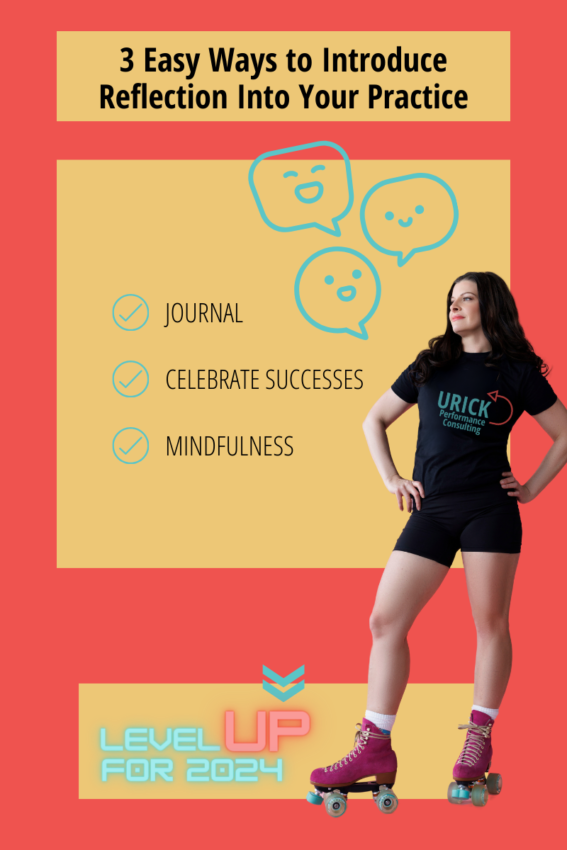As the new year approaches, athletes typically set ambitious goals for the upcoming season. Whether that is achieving personal bests, conquering new challenges, or maybe even starting something new, the journey begins with the end in mind. Athletes can gain an advantage by embracing the often-overlooked practice of reflection.

Reflective practice has a transformative impact on an athlete’s performance. This practice involves taking the time to introspectively examine past experiences, acknowledging successes, and learning from setbacks. It’s a crucial tool that serves as the foundation for effective goal setting – a guide for setting up a more focused, intentional, and successful journey in the year ahead.
One of the key benefits of reflective practice is heightened self-awareness. Athletes who regularly engage in reflection gain valuable insights by understanding their psychological landscape. From there, athletes can tailor their goals to align with their unique situation. This self-awareness becomes the compass guiding them through the peaks and valleys of their athletic endeavors.
Additionally, reflective practice serves as a potent antidote to burnout. Athletes often find themselves caught in a relentless pursuit of achievement, neglecting the importance of mental and emotional well-being. And rest. Reflective practice provides that intentional pause button—a chance to recalibrate, recharge, and recover with a refreshed perspective. By acknowledging the good, the great, and the not-so-great, athletes can set goals prioritizing sustainable growth and long-term success without the mental and physical exhaustion that leads to burnout.
Consider a runner who experienced a series of injuries during the previous season. Through reflective practice, they can pinpoint the contributing factors, such as overtraining or improper warm-up routines. With this knowledge, the athlete can set realistic goals for the new year, incorporating injury prevention strategies and gradually building up their training intensity. This approach not only enhances performance but can potentially minimize the risk of setbacks. (And maybe a plan to incorporate mental training routines for when they’re unable to run.)
Reflective practice cultivates resilience—a crucial quality for athletes navigating the unpredictableness of competition. By overcoming past challenges (and acknowledging them!), athletes develop a deeper confidence base that propels them forward. This resilience can help shield them from self-doubt, setbacks, and external pressures, ensuring they stay on course to achieve their goals.
To integrate reflective practice into your goal-setting process, start a reflective journal. Regularly document your training sessions, competitions, and emotions associated with each experience. Ask yourself what worked well, what could be improved, and what lessons you can extract.
The road to successful goal-setting in the new year begins not with a sprint but with a reflective jog down memory lane. Athletes who invest time in introspection and self-analysis gain a competitive advantage by setting goals grounded in self-awareness. May this new year bring not just accomplishments, but also new wisdom gained through the power of reflective practice.